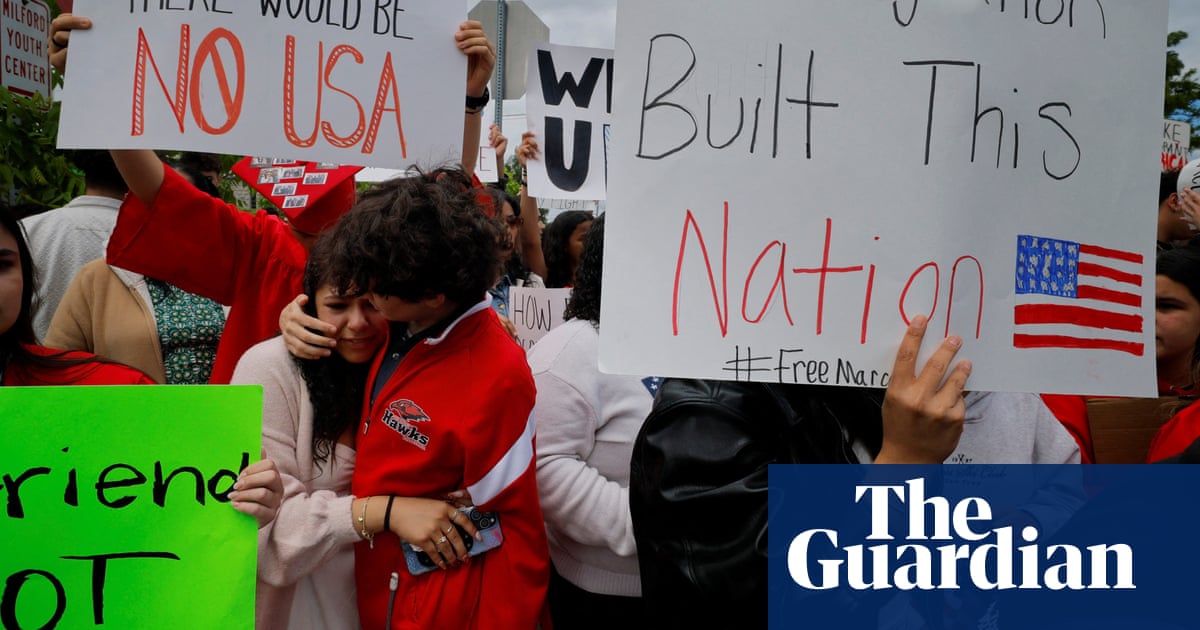The arrest of a Boston teenager by ICE agents has sparked significant public backlash and raised questions about immigration enforcement practices in the United States. This incident highlights a broader debate surrounding immigration policies and their impact on individuals, particularly those who are vulnerable or in precarious situations.
Public Reaction and Protests
The detainment of 18-year-old Marcelo Gomes Da Silva has led to widespread protests in Milford, Massachusetts. The community's reaction reflects a growing concern about the aggressive tactics employed by immigration enforcement agencies, especially when targeting individuals who are not the primary subjects of investigations. The protests indicate a collective sentiment against perceived injustices within the immigration system.
Legal Context and Implications
Gomes's arrest comes at a time when many individuals, particularly immigrants, are navigating complex legal statuses. His situation—having entered the U.S. on a student visa that has since lapsed—raises questions about the legal protections available to those seeking asylum. The emergency order issued by a federal judge to prevent his transfer out of Massachusetts underscores the legal complexities involved in immigration enforcement.
Government Justifications
ICE officials defended their actions by stating that they were enforcing immigration laws. The agency's stance reflects a broader commitment to strict immigration enforcement under the current administration. This justification, however, may not resonate with the public, particularly in light of the fact that Gomes was not the target of the investigation.
Social and Political Implications
This incident could have broader implications for the social and political landscape in the U.S. It may galvanize advocacy for immigration reform and influence public opinion regarding the treatment of immigrants. The strong reaction from local leaders and the community suggests that there may be a growing movement against aggressive immigration enforcement.
Economic Considerations
While the article does not directly address economic impacts, the ongoing debates around immigration policy can influence market dynamics, particularly in sectors reliant on immigrant labor. Companies may face uncertainty regarding their workforce and operational strategies if immigration laws become more stringent.
Community Support and Target Audience
The article resonates with communities that advocate for immigrant rights and social justice. It aims to highlight the human aspect of immigration enforcement, appealing to individuals who are sympathetic to the struggles of those facing deportation or legal challenges.
Global Context
In a broader context, this incident reflects ongoing global discussions about immigration, human rights, and national security. The treatment of immigrants is a pressing issue in many countries, and events like this in the U.S. can influence perceptions internationally.
Potential Manipulation and Bias
While the article presents facts related to the incident, there may be an underlying agenda to sway public opinion against current immigration policies. The language used, such as describing the protests as a "massive outcry," may be intended to evoke strong emotional responses from readers. This could suggest a manipulative element aimed at mobilizing public sentiment.
The article maintains a high degree of factual accuracy, providing details about the arrest and subsequent protests. However, the framing of the events may lead to a perception of bias, particularly among readers who may feel strongly about immigration issues. Overall, while the article is grounded in real events, it does convey a particular narrative that aligns with advocacy for immigrant rights and reform.
